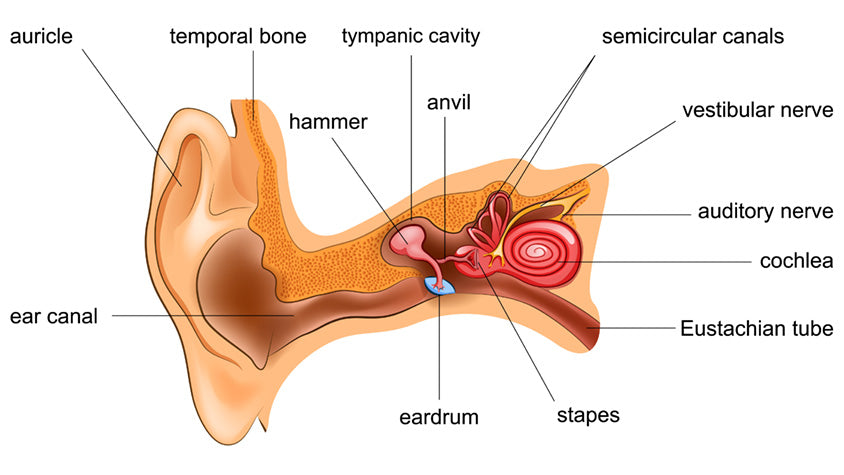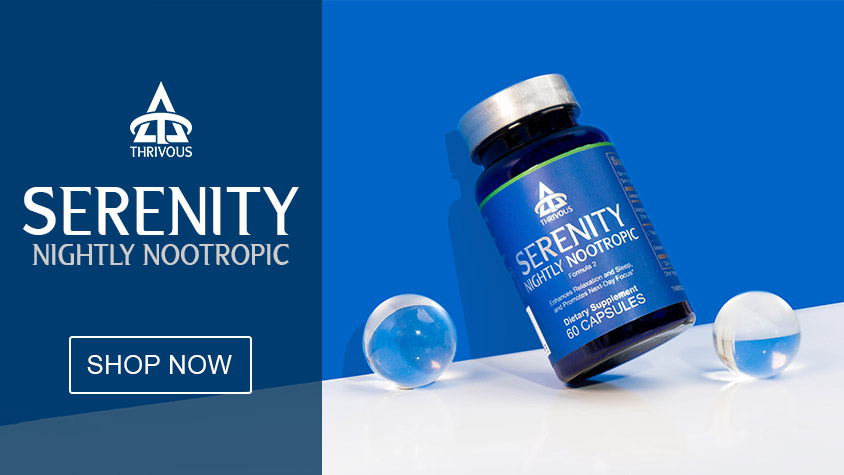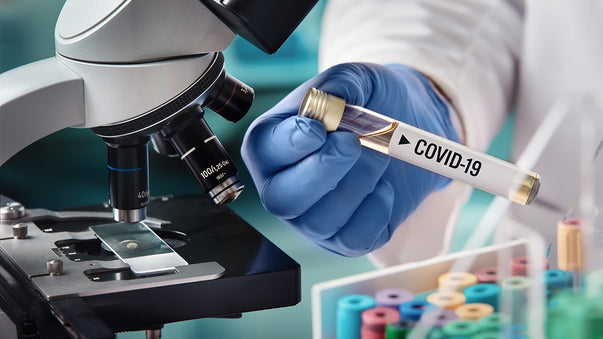What Is Melatonin? Does It Work? Is It Safe?

Melatonin is a hormone and a popular dietary supplement. You’ve probably heard that it regulates your sleep and wake cycle. But it also does a lot more that most people haven’t heard about. This is a review of the emerging science, practical use, and safety of Melatonin supplements.
Many people think, as claimed on Wikipedia, that the molecule “is primarily released by the pineal gland.” That’s an organ deep in the center of the brain. And, as discovered in 1958, Melatonin production does occur in the pineal gland. But other organs and systems in the body produce more.
Notably, the gastrointestinal tract (GIT) produces hundreds of times more than the pineal gland. The GIT includes your intestines, as well as your stomach and esophagus. And this hints at some of the (perhaps surprising) things that supplements can help with.
The body makes Melatonin from serotonin. Serotonin is also a hormone, which the body makes from dietary tryptophan, an essential amino acid. Many people associate serotonin with the brain. But again, although serotonin exists throughout the nervous system, the GIT produces most serotonin.
How does Melatonin work? Once produced, it interacts with other molecules in its vicinity that have matching receptors. Such receptors exist throughout the body, including the brain, heart, and skin. Receptors also exist throughout the reproductive system and the GIT.

What does Melatonin do? Specific effects depend on its context (see below). But an important general effect is synchronization of body functions. This synchronization is the circadian rhythm, which is a biological clock for cyclical processes throughout the body.
Over time, our bodies may decrease production of Melatonin or change the pattern of production. This may be caused by aging or by environmental factors. And it’s often associated with trouble falling asleep, as well as disturbances and inefficiencies in other body functions. In an effort to support healthy Melatonin levels, many people use supplements.
Supplements generally provide a bioidentical version of the molecule. That means the molecule is chemically identical to that which the human body synthesizes. Some supplements provide a version of the molecule that comes from animals. But they are less popular for various reasons, including a higher risk of contamination.
What is Melatonin used for? The most popular application is as a sleep aid, among people with insomnia or that have a delayed sleep wake phase. Travelers often use a supplement to help them avoid jet lag and sleeping problems when they cross time zones. However, supplements offer more than sleep benefits, as we’ll see below.
Does Melatonin Work for Sleep?
People make many claims about what does and does not work. Often they appeal to their personal experience or the testimonies of others. Sometimes they talk about studies done in test tubes or on lab rats. But the best evidence comes from clinical trials that involve humans, preferably with placebo control.
Below, I’ll share several human studies. My goal is to promote education. This is not medical advice. At Thrivous, we always encourage you to consult with your physician before and during use of all supplements.

With that in mind, let’s look at the evidence. Melatonin supplements are well known to promote sleep. And for that use, this supplement appears in my list of top tier nootropics. Evidence comes from multiple human studies, including the following:
- Add-on Prolonged-Release Melatonin for Cognitive Function and Sleep in Mild to Moderate Alzheimer's Disease: A 6-month, Randomized, Placebo-Controlled, Multicenter Trial. In 2014, this study found that the supplement “has positive effects on cognitive functioning and sleep maintenance.”
- Prolonged Release Melatonin in the Treatment of Primary Insomnia: Evaluation of the Age Cut-Off for Short- And Long-Term Response. In 2011, this study observed “short- and long-term efficacy of [Melatonin] in insomnia patients.”
- The effect of prolonged-release melatonin on sleep measures and psychomotor performance in elderly patients with insomnia. In 2009, this study found that “nightly treatment with [Melatonin] effectively induced sleep and improved perceived quality of sleep in patients.” It also found that “daytime psychomotor performance was not impaired and was consistently better … compared with placebo.” And the supplement “was well tolerated with no evidence of rebound effects.”
- Controlled Release Melatonin in the Treatment of Insomnia in Older Patients: Efficacy and Safety in Patients With History of Use and Non-Use of Hypnotic Drugs. In 2009, this study found that the supplement provides “shortening of sleep Latency.” It also found “improvements in sleep quality and next day alertness and subsequently, quality of life.”
- Prolonged-release melatonin improves sleep quality and morning alertness in insomnia patients aged 55 years and older and has no withdrawal effects. In 2007, this study found that Melatonin improves “quality of sleep and morning alertness.” This suggested “more restorative sleep, and without withdrawal symptoms.”
- Efficacy of Prolonged Release Melatonin in Insomnia Patients Aged 55-80 Years: Quality of Sleep and Next-Day Alertness Outcomes. In 2007, this study found that Melatonin “results in significant and clinically meaningful improvements in sleep quality.” It also improves “morning alertness, sleep onset latency and quality of life.”
Not all studies have produced the same results. For that reason, scientists have performed meta-analyses. These are studies of other studies, which help us make general observations. Here they are:
- Exogenous Melatonin as a Treatment for Secondary Sleep Disorders: A Systematic Review and Meta-Analysis. In 2019, this meta-analysis of seven human studies observed that Melatonin “lowers sleep onset latency and increases total sleep time.”
- Meta-analysis: Melatonin for the Treatment of Primary Sleep Disorders. In 2013, this meta-analysis of nineteen human studies observed that Melatonin “decreases sleep onset latency.” It also “increases total sleep time and improves overall sleep quality.”
- Melatonin for the prevention and treatment of jet lag. In 2002, this meta-analysis of ten human studies observed that “Melatonin is remarkably effective in preventing or reducing jet-lag.”
In summary, the best available science shows that Melatonin may promote sleep. The evidence comes from multiple human studies and meta-analyses. That doesn’t mean that it will work the same for everyone in all situations. But it does provide reasonable grounds for consideration, informed by unique personal situations.
More Melatonin Benefits
Now let's take a look at evidence for some other benefits that most people don’t know about. Scientists are testing many possibilities, ranging from support for healthy blood pressure to enhancement of memory. Some have little evidence, and some have small effects. But I’ll share three benefits for which there’s relatively good evidence for notable effects.
Before I share them, here’s another word of caution. Some of the evidence that I’ll share comes from studies of persons with health conditions. But my goal is to help healthy adults have informed discussions with health care professionals about options for better aging. Supplements are not approved by the Food and Drug Administration in the United States to diagnose, treat, cure, or prevent any disease.

Remember that your gut normally produces hundreds of times more of the molecule than your brain (see above)? Well, as it turns out, Melatonin supplements may support healthy stomach and esophageal function. For example, healthy adults may experience less heartburn, which many of us have from time to time. Evidence comes from multiple human studies:
- Effects of melatonin and tryptophan on healing of gastric and duodenal ulcers with Helicobacter pylori infection in humans. In 2011, this study found that Melatonin “significantly accelerates healing rate of H. pylori infected chronic gastroduodenal ulcers.”
- Melatonin or l-tryptophan accelerates healing of gastroduodenal ulcers in patients treated with omeprazole. In 2011, this study found that Melatonin, “when added to omeprazole treatment, accelerates ulcer healing.”
- Role of melatonin in mucosal gastroprotection against aspirin-induced gastric lesions in humans. In 2010, this study found that “melatonin and its precursor tryptophan given orally significantly reduce gastric lesions induced by ASA.”
- The potential therapeutic effect of melatonin in Gastro-Esophageal Reflux Disease. In 2010, this study found that “melatonin is a promising therapeutic agent for the treatment of GERD.” And “it is an effective line of treatment in relieving epigastric pain and heartburn.”
Next, Melatonin supplements may support healthy auditory function. For example, healthy adults may experience less ringing in the ears, which many of us have from time to time. Again, evidence for this benefit comes from multiple human studies:
- Melatonin: can it stop the ringing? In 2011, this study found that “Melatonin is associated with a statistically significant decrease in tinnitus intensity.” It also “improved sleep quality in patients with chronic tinnitus.”
- Treatment of central and sensorineural tinnitus with orally administered Melatonin and Sulodexide: personal experience from a randomized controlled study. In 2009, this study found that Melatonin is “a viable treatment option for patients suffering from central or sensorineural tinnitus.”
- The effects of melatonin on tinnitus and sleep. In 2006, this study found that “Melatonin may be a safe treatment for patients with idiopathic tinnitus.” And “especially those with sleep disturbance” may benefit.
- Effect of melatonin on tinnitus. In 1998, this study found Melatonin “to be useful in the treatment of subjective tinnitus.”

These studies provide evidence that the potential health benefits of Melatonin go well beyond sleep. But they still might only be scratching the surface. Let’s take a look at one more possibility, with broader implications.
Can Melatonin Reverse Aging?
Perhaps most intriguing, Melatonin supplements may be geroprotectors. In other words, they may help us combat the effects of aging throughout the body. Scientists have found preliminary evidence for this in animal studies, where they extended the life of flies and mice. One explanation is that the supplement acts as a potent antioxidant.
During aging and other stressors, the body produces free radicals. They include unstable oxygen molecules with an unpaired electron. The electron can cause damage to cells, proteins, and DNA as it attempts to pair with them. An antioxidant can prevent damage by pairing with and neutralizing the free radical before it does damage.
As in animals, Melatonin supplements act as particularly potent antioxidants in humans. Evidence for this comes from multiple human studies:
- Melatonin administrated immediately before an intense exercise reverses oxidative stress, improves immunological defenses and lipid metabolism in football players. In 2012, this study found that “treatment with melatonin in acute sports exercise reversed oxidative stress.” It also “improved defenses and lipid metabolism, which would result in an improvement in fitness.”
- Melatonin supplementation ameliorates oxidative stress and inflammatory signaling induced by strenuous exercise in adult human males. In 2011, this study found that “melatonin supplementation before strenuous exercise reduced muscle damage.” It did so “through modulation of oxidative stress and inflammation signaling associated with this physical challenge.”
- Melatonin treatment improves blood pressure, lipid profile, and parameters of oxidative stress in patients with metabolic syndrome. In 2011, this study found that “Melatonin administered for 2 months significantly improved antioxidative defense.”
In fact, Melatonin supplements may be more effective than other well known antioxidant supplements such as Vitamin C, Resveratrol, and EGCG. Here’s a study that compared them:
- Melatonin, xanthurenic acid, resveratrol, EGCG, vitamin C and alpha-lipoic acid differentially reduce oxidative DNA damage induced by Fenton reagents: a study of their individual and synergistic actions. In 2003, this study found that, "among the antioxidants tested, melatonin was the most effective.”
This antioxidant power may be particularly important in mitochondria. Not only the power plants of cells, mitochondria play a role in most cellular functions. Consequently, they produce many free radicals. And, when functioning well, mitochondria also maintain high concentrations of Melatonin.
Such studies and observations have motivated scientists to look harder at Melatonin anti-aging potential throughout the human body. And research has increased in exciting areas such as regenerative medicine. Much work remains to be done. But the prospects already merit serious attention.

How Much Melatonin Should I Take?
Scientists have used a range of doses in long and short term clinical studies, as outlined above. Most sleep studies use an amount of Melatonin around 2 mg. Dosages in studies for digestive and auditory benefits range from 3 to 10 mg daily. And dosages for antioxidant benefits are around 5 mg daily.
When to take Melatonin? The best time is shortly before you plan to sleep. It is a sedative, which means that it makes most people sleepy. Don’t use it before driving or any other activity that requires focus.
How long does it take for Melatonin to work? It will usually begin to promote sleep within a half hour. Other potential benefits may require regular use for several days or longer periods of time to become noticeable.
How long does Melatonin last? For all normal doses, blood levels peak after about an hour. Then blood levels decrease by half every 30 to 45 minutes. And the body returns to its pre-supplement state within about six hours.
Can you build a tolerance to Melatonin? In long term studies (see below), participants didn’t develop a tolerance to any normal dose. Supplements continued to be effective even after months or years of use.
Is Melatonin Safe?
Is Melatonin bad for you? Some people worry that, despite the benefits outlined above, it may be harmful. There are concerns about the possibility of overdose and addiction, as well as safety for children and pregnant women.
Can you overdose on Melatonin? It’s possible to overdose on anything. Even too much water can kill you. So it’s best to use doses for which human studies have been performed.
How much Melatonin is safe? Human studies suggest that it’s generally safe for healthy people to use normal doses. As outlined above, normal doses range up to 10 mg daily.

How much Melatonin is too much? Scientists have tested single doses of 240 mg and 500 mg on healthy men. They observed no toxic effects. However, these tests do not establish the safety of such doses for repeated use.
Is Melatonin addictive? Scientists have conducted long term studies on older women and dementia patients, as well as children (see below). The adult studies were for periods ranging up to nearly 3 years, at dosages ranging up to nearly 10 mg daily. They reported no evidence of dependence or any other serious adverse effects.
Is Melatonin safe for kids? Clinical studies for most supplements focus on adults, but some Melatonin studies have included children. For example, scientists conducted long term studies on 44 children and 51 children. They reported no evidence of substantial deviation from normal puberty development or any other serious adverse effects.
Can you take Melatonin while pregnant? Clinical studies for most supplements don’t include pregnant women, so caution is warranted. However, some Melatonin studies have included pregnant women with positive outcomes. If you’re pregnant and would like to use a supplement, please consult your physician.
Thrivous Serenity
Based in part on the information presented in this article, Thrivous developed Serenity Nightly Nootropic. Serenity is a dietary supplement that provides 5 mg of Melatonin in each serving of two capsules. It also provides clinical doses of L Theanine and Magnesium Glycinate. The formula is designed to help you relax and sleep better, so that you can be more productive the next day.
Like all Thrivous supplements, we develop and formulate Serenity based on the best available science. The formula reflects the highest levels of evidence for the greatest magnitudes of effect across human studies. And we monitor and analyze new studies as they become available. This provides the greatest potential for real practical benefits.
To give you confidence, Serenity is also completely open source. We disclose all nutrients and doses on the label. And we publish all test results from the rigorous quality control of our suppliers, manufacturing, and third-party testers. This is an exceptional practice in our industry.
If you’re looking for the best Melatonin supplement, you’ve come to the right place. Expect the best science, the best quality, and the best value. Serenity Nightly Nootropic is available in our online store with a happiness guarantee. Get yours today.
More Articles
Read more articles at Thrivous, the human enhancement company. You can browse recent articles in Thrivous Views. See other Geroprotectors, Nootropics or Product Ingredient articles. Or check out an article below.
-
Blueberry, Omega 3, and L Theanine for Human Enhancement
When thinking about sharing a treat with a child, people don’t often think about going to the produce section of ...
-
COVID-19 Pandemic Roundup
Not surprisingly, this issue of Pulse is almost entirely focused on the COVID-19 pandemic. Like everyone, I am following COVID-19 ...



